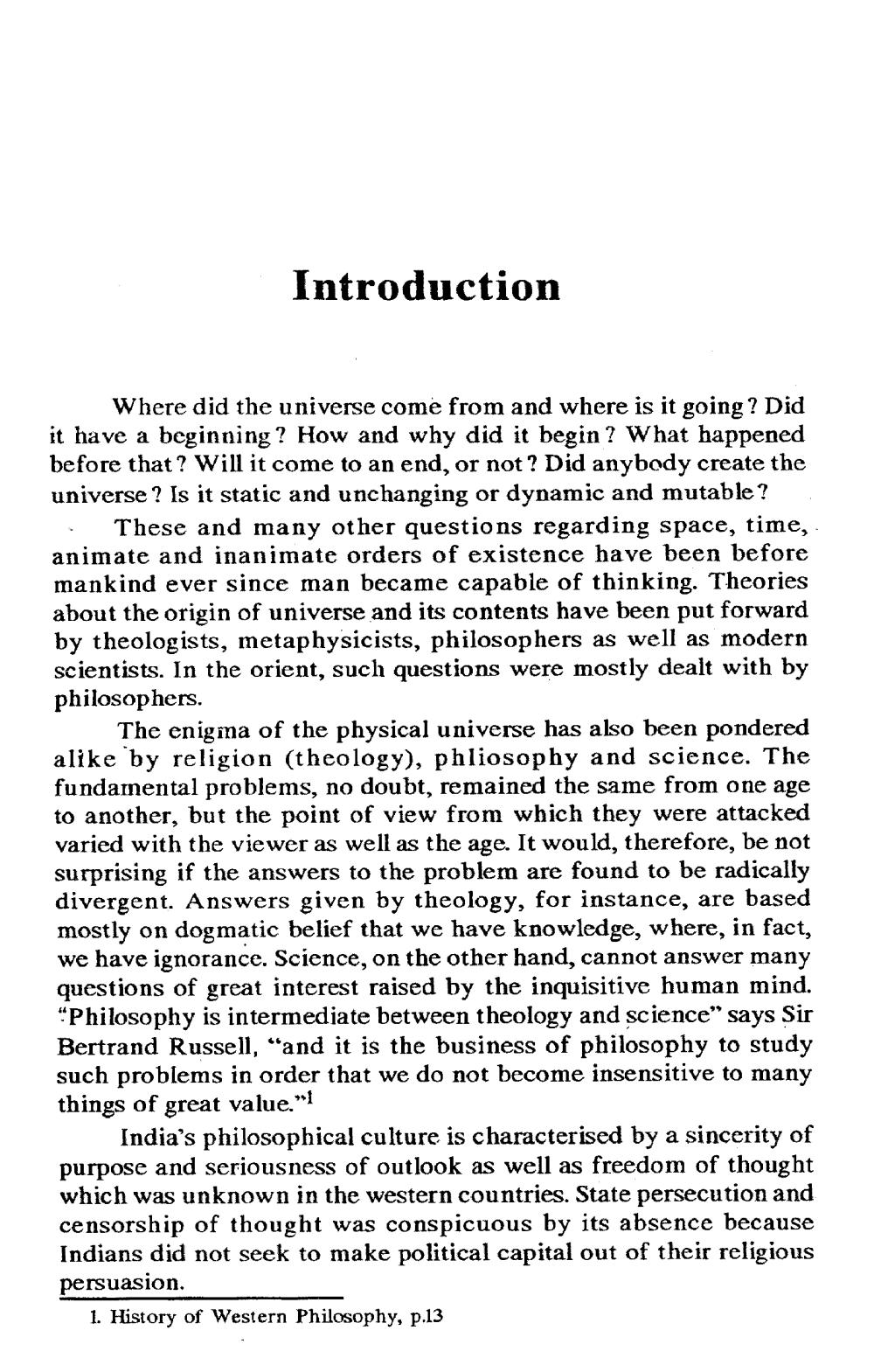Book Title: Microcosmology Atom in Jain Philosophy and Modern Science Author(s): Jethalal S Zaveri, Mahendramuni Publisher: Jain Vishva Bharati View full book textPage 5
________________ Introduction Where did the universe come from and where is it going? Did it have a beginning? How and why did it begin? What happened before that? Will it come to an end, or not? Did anybody create the universe ? Is it static and unchanging or dynamic and mutable? . These and many other questions regarding space, time, animate and inanimate orders of existence have been before mankind ever since man became capable of thinking. Theories about the origin of universe and its contents have been put forward by theologists, metaphysicists, philosophers as well as modern scientists. In the orient, such questions were mostly dealt with by philosophers. The enigma of the physical universe has also been pondered alike by religion (theology), phliosophy and science. The fundamental problems, no doubt, remained the same from one age to another, but the point of view from which they were attacked varied with the viewer as well as the age. It would, therefore, be not surprising if the answers to the problem are found to be radically divergent. Answers given by theology, for instance, are based mostly on dogmatic belief that we have knowledge, where, in fact, we have ignorance. Science, on the other hand, cannot answer many questions of great interest raised by the inquisitive human mind. "Philosophy is intermediate between theology and science” says Sir Bertrand Russell, “and it is the business of philosophy to study such problems in order that we do not become insensitive to many things of great value." India's philosophical culture is characterised by a sincerity of purpose and seriousness of outlook as well as freedom of thought which was unknown in the western countries. State persecution and censorship of thought was conspicuous by its absence because Indians did not seek to make political capital out of their religious persuasion. 1. History of Western Philosophy, p.13Page Navigation
1 ... 3 4 5 6 7 8 9 10 11 12 13 14 15 16 17 18 19 20 21 22 23 24 25 26 27 28 29 30 31 32 33 34 35 36 37 38 39 40 41 42 43 44 45 46 47 48 49 50 51 52 ... 266
